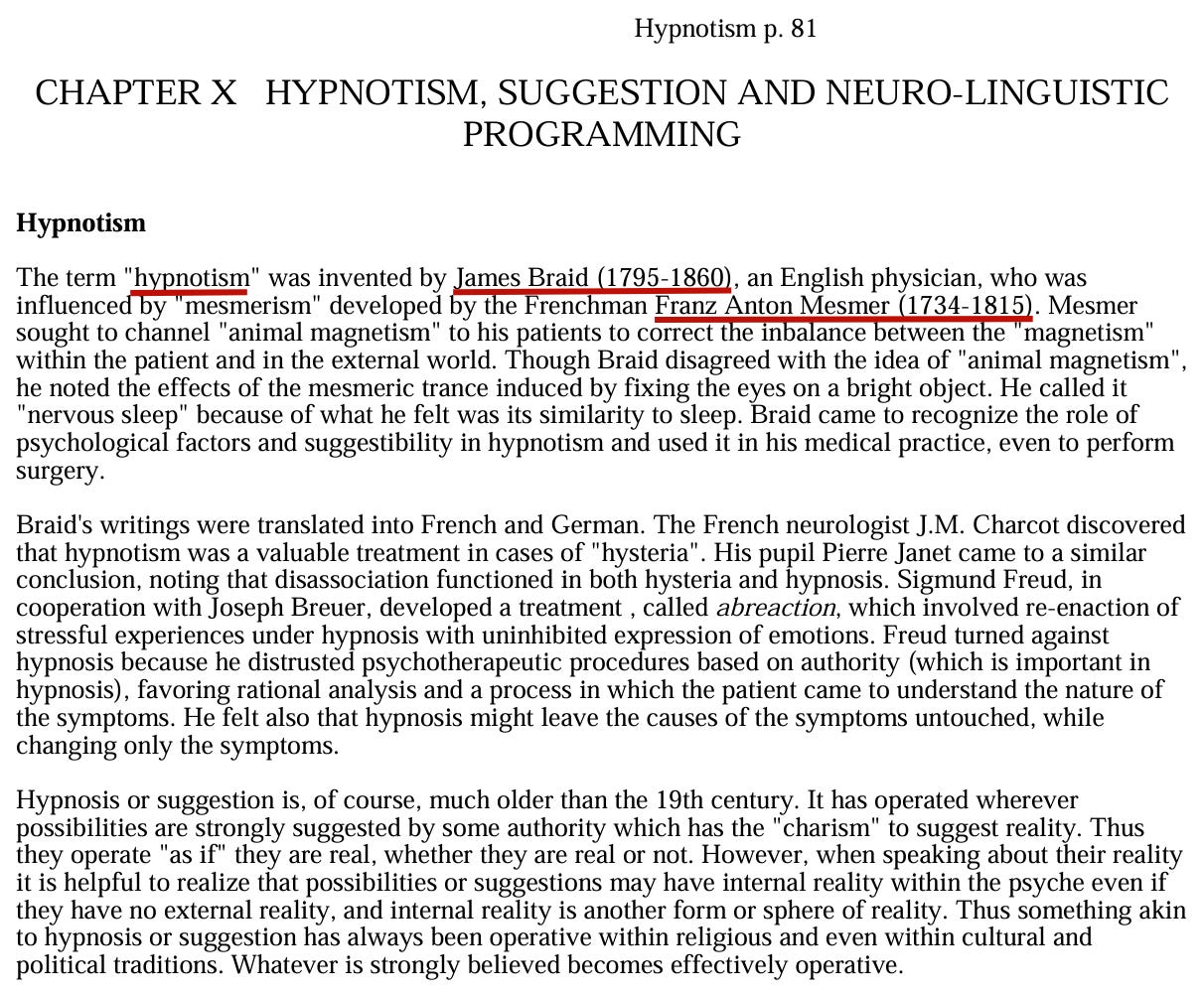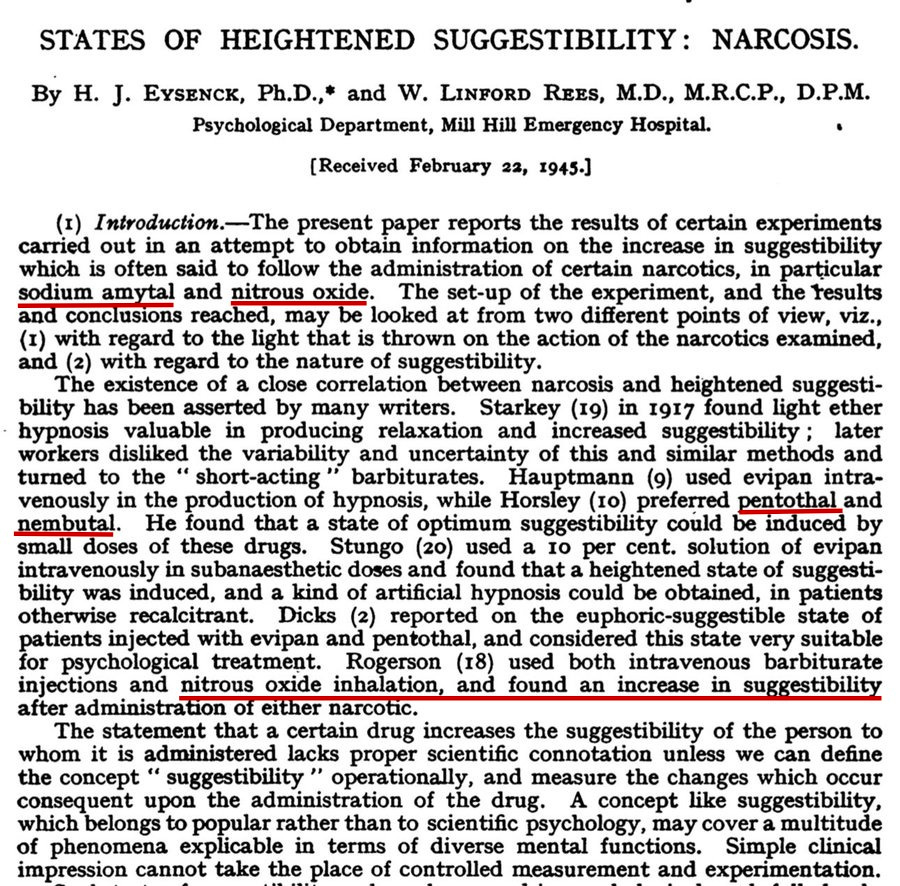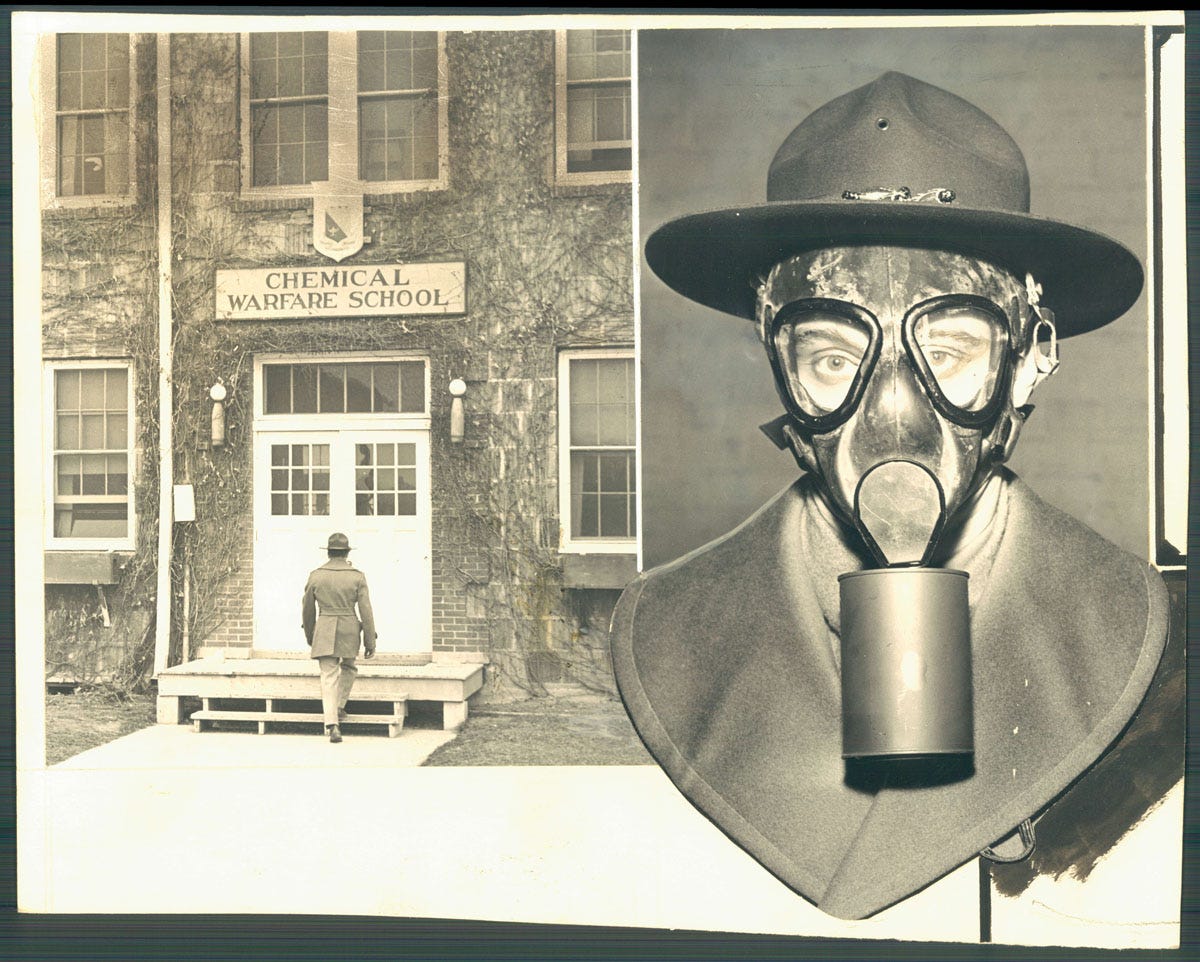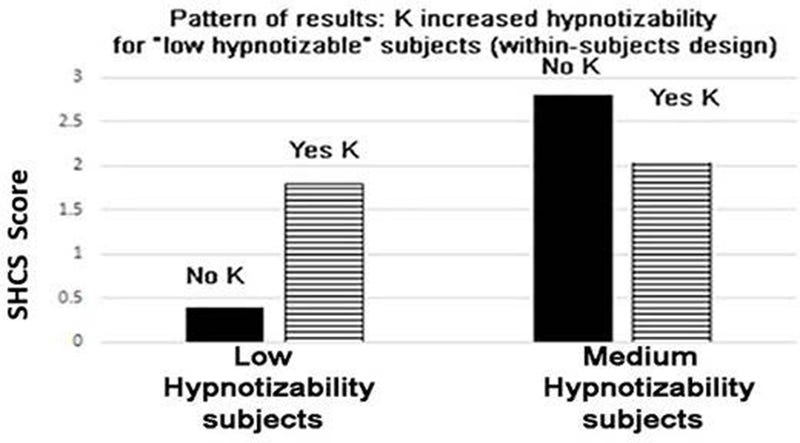Research on Suggestibility Risk Factors
Everything I could find about the topic and all risk factors online. I also included some examples of nefarious uses.
I was going to wait to publish for a video but with the recent shooting at Abundant Life Christian school, I wanted to warn parents about all the possible risk factors for suggestibility.
Childhood Trauma
Children in General
Psychedelic Drugs (LSD, Mushrooms, Cannabis, Ayahuasca)
Methadone Detox
High Alcohol Consumption
Sodium Amytal (Michael Jackson accuser’s father used it to implant false memories)
Nitrous Oxide
Dissociative Identity Disorders
PTSD
I highlighted the important paragraph or sentence of each study listed and hyperlinked for convenience. *Reminder: hostile foreign countries can determine suggestibility from social media and can predict or even exacerbate psychosis online. The mental health issues aren’t necessarily the problem, it’s just they have the highest risk of suggestibility. These people need to be protected and our government has a duty to warn the public.
Hypnotism Invented in the 1700s
CHAPTER X: HYPNOTISM, SUGGESTION AND NEURO-LINGUISTIC PROGRAMMING | MoravianSeminary.edu | April 14, 2017
STATES OF HEIGHTENED SUGGESTIBILITY: NARCOSIS | By H. J. EYSENcK, Ph.D.,5 and W. LINFORD REE5, M.D., M.R.C.P., D.P.M. | Psychological Department | Mill Hill Emergency Hospital | February 22, 1945
Higher Suggestibility in Children
Why Children’s Suggestibility Remains a Serious Concern | Duke Law | 2002
Trauma, PTSD, and Abused Children
The Relationship between Suggestibility, Fabrication, Distortion, and Trauma in Suspected Sexually Abused Children | Department of Humanities, University of Urbino | January 24, 2021
Being a victim of abuse in childhood can lead to the development of trauma-related psychopathology, which could affect the testimony of the child victim. Post-traumatic stress disorder (PTSD) is a factor that can increase both the levels of suggestibility and the production of memory errors, such as confabulations, which can be identified in distortions and fabrications.
No studies have analyzed the relationship between suggestibility, fabrications, distortions, and PTSD on samples of children and adolescents suspected of being sexually abused.
This study aims to verify in a sample of 221 sexually abused children and adolescents the effect of PTSD, measured by Trauma Symptoms Checklist for Children, in increasing the levels of immediate and delayed suggestibility and the production of fabrications and distortions in immediate and delayed memory tasks, obtained by Gudjonsson Suggestibility Scale 2, controlling age and non-verbal intelligence.
Dentist Evan Chandler (Charmatz) used Sodium Amytal to implant false memories in his son to accuse Michael Jackson of child abuse.
Soviets Weaponized LSD During Vietnam
The LSD cult that transformed America | BBC | January 12, 2017
The Brotherhood began to distribute—often for free—their own brand of LSD called Orange Sunshine, with funds raised from the smuggling of Afghan hashish, which they brought directly from Kabul and Kandahar, via Karachi, Istanbul, Frankfurt and London.
Why would they give out LSD for free during the Vietnam War?
State and federal governments argued that the psychedelic drug, also known as acid, threatened the fabric of US life, and they were right – LSD made neither good consumers nor loyal citizens in a time of war.
Clandestine LSD Chemist’s Ties to the Soviets and Israel
LSD enhances suggestibility in healthy volunteers | PubMed | Sep 23, 2014
The results also imply that individuals with high trait conscientiousness are especially sensitive to the suggestibility-enhancing effects of LSD.
MK Ultra Experimented on Soldiers
Our Government Allowed *Former* Nazis to Experiment on U.S. Soldiers
Edgewood Arsenal: When the Army Drugged Soldiers Like Guinea Pigs | Veteran Life | 2024
The Edgewood Arsenal human experiments took place between 1955 and 1975. They occurred at a classified US Army facility, exposing around 7,000 Soldiers to more than 250 chemicals. Many of those administering the experiments at Edgewood Arsenal under the direction of Dr. James Ketchum, who had ties to Nazi Germany.
Additionally, they were already aware of unethical, experimental health studies. Soldiers were exposed to drugs, chemical warfare agents, and a number of substances to test their effects, evaluate protective measures, and ultimately, to find a way to incapacitate humans.
Some of the agents Soldiers were exposed to during their time at Edgewood Arsenal, include:
Alcohol and caffeine
Anticholinesterase nerve agents (e.g., sarin and common organophosphorus (OP), and carbamate pesticides)
Incapacitating agents (e.g. BZ (2-quinuclidinyl benzilate))
Irritants and riot control agents
Mustard agents
Nerve agent antidotes atropine and scopolamine
Nerve agent reactivators (e.g., the common OP antidote 2-PAM chloride)
Psychoactive agents (ex., LSD, PCP, and cannabinoids)
PTSD
Dissociation and hypnotizability in posttraumatic stress disorder | American Journal of Psychiatry | March 1988
Magic Mushrooms
Assessing expectancy and suggestibility in a trial of escitalopram v. psilocybin for depression | Psychological Medicine | Cambridge Core | January 22, 2024
Overall, our results suggest that psychedelic therapy may be less vulnerable to expectancy biases than previously suspected. The relationship between baseline trait suggestibility and response to psilocybin therapy implies that highly suggestible individuals may be primed for response to this treatment.
Suggestibility and Alcohol Consumption
Suggestibility is associated with alcohol self-administration, subjective alcohol effects, and self-reported drinking behavior | PMC | Mar 4, 2019
Results indicate that suggestibility, beyond peer conformity, may be a critical factor to study when examining alcohol consumption behavior, and may provide insight into the development of alcohol use disorder.
Alcohol, Psychoactive Drugs, and False Memories
Hazy memories in the courtroom: A review of alcohol and other drug effects on false memory and suggestibility | ScienceDirect | May 2021
Alcohol and other psychoactive drugs are oftentimes implicated in legal cases. A pertinent question herein is whether such substances might adversely affect testimonies of victims, eyewitnesses, or suspects by propelling the formation of false memory and increasing susceptibility to suggestion.
In the current review, we amassed all available evidence on the effects of intoxication on false memory formation and suggestibility, including the substances alcohol, benzodiazepines, cannabis, stimulants, hallucinogens, and antipsychotics. Our review indicated that alcohol and cannabis under certain conditions increased the susceptibility to false memories and/or suggestion with effect sizes ranging from medium to large.
When intoxicated during an event, alcohol is most likely to increase this susceptibility at high intoxication levels or after a delay, whereas cannabis exerts detrimental effects during acute intoxication but not necessarily once sober.
For other substances, ecologically valid research separating different memory phases is needed. Overall, differences between substances regarding false memory effects exist, suggesting that a nuanced approach is needed when dealing with intoxicated individuals in a legal context.
Marijuana
Effects of cannabis intoxication on primary suggestibility | Psychopharmacology | January 1978
Thirty-five subjects of known hypnotizability were tested for primary suggestibility in the waking state with and without marijuana intoxication. The drug caused an increase in suggestibility similar to that produced by the induction of hypnosis. The effect did not persist when subjects were retested one week later in their normal waking state.
KETAMINE AS A POSSIBLE MODERATOR OF HYPNOTIZABILITY: A FEASIBILITY STUDY | PMC | Oct 11, 2018
We had predicted that low hypnotizable participants would score higher on the SHCS when receiving low-dose ketamine. The results of the effects of ketamine on hypnotic suggestibility scores are presented in Figure 1.
Low hypnotizability participants did show the predicted pattern of increased SHCS scores when receiving low-dose ketamine (effect size, Cohen’s d = 1.57 representing a large effect. In contrast, medium hypnotizability participants did not show an increase in SCHS scores with the low-dose ketamine infusion.
Methadone Detox Suggestibility
Interrogative suggestibility in opiate users | PubMed | Sep 1996
The present study investigated interrogative suggestibility in opiate users. A group of patients undergoing a methadone detoxification programme in an in-patient drug treatment unit (Detox group, n = 21), and a group of residents who had come off drugs and were no longer suffering from withdrawal syndrome (Rehab group, n = 19) were compared on interrogative suggestibility and various other psychological factors.
Significant differences were found between the two groups, with the Detox group having more physical and psychological problems, and a higher total suggestibility score in comparison with the Rehab group. These findings are discussed in relation to the context of police interrogations and the reliability of confessions made by suspects and witnesses dependent on opiates.
Ayahuasca Heightens Suggestibility
The Therapeutic Potentials of Ayahuasca: Possible Effects against Various Diseases of Civilization | PMC | Mar 2, 2016
This decoupling phenomenon results in increased flexibility of high-level networks involving a more open communication among them. It permits a freer operation of the medial temporal lobe structures, which are associated with the release of cognitive states closely related to emotions and fears.
The outcome is a complex mental condition characterized by increased somatic awareness and subjective feelings, but lacking the metacognitive ability for self-reflection on personal behavior and one’s mentalization provided by the frontal cortex.
This so-called primary cognition produces a state of heightened suggestibility because of the suspension of the frontal networks that are typically used to maintain control over mental processes and perceptions of the outside environment.
Hypnotism and Chronic Pain
Stanford scientists boost hypnotizability with transcranial magnetic brain stimulation | Psy Post | January 4, 2024
Hypnosis can play an important role in managing various psychiatric and neurological symptoms. Notably, hypnosis has been particularly effective in reducing pain. However, a key challenge has been the varying degrees of hypnotizability among individuals – essentially, how responsive they are to hypnosis. This variability is a stable trait influenced by cognitive, neural, and behavioral components.
Around two-thirds of adults show some level of hypnotizability, with about 15% being highly responsive. These high responders can achieve remarkable feats like undergoing surgeries without anesthesia solely under hypnosis. This variation in hypnotizability prompted the researchers to investigate if they could enhance a person’s responsiveness to hypnosis.
Suggestibility and IQ
Interrogative suggestibility among adolescent boys and its relationship with intelligence, memory, and cognitive set | PubMed | Jun 15, 1992
This study investigates some of the hypotheses generated by the Gudjonsson and Clark model of interrogative suggestibility. The subjects were 40 adolescent boys (11-16 years), who completed the Gudjonsson Suggestibility Scale and instruments measuring intellectual skills, memory, field-dependence, hostility, and attitudes towards persons in authority. Suggestibility correlated negatively with I.Q. and memory capacity, and positively with field-dependence.
Mass Shootings: Microtargeted Terrorism | Divided & Conquered | November 05, 2023
Every act that has a political purpose always has a political signature.
Lewiston Shooting Russian Retaliation Against Maine Senators?
Psychosis or Hypnotic Suggestibility in Micro-targeted Terrorism? | Divided & Conquered | Aug 22, 2024
Hypnotic suggestibility in dissociative and related disorders: A meta-analysis | ScienceDirect | August 2022
You can follow me on X.com @DCinTejas—my DMs are always open—or email me at DCinTejas@proton.me for tips. If you email me, just DM me on X, so I know to check it. Thanks!
-D.C.






















